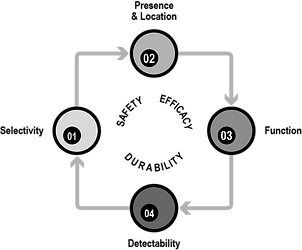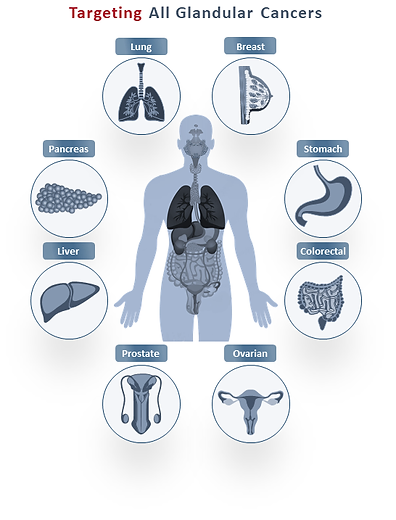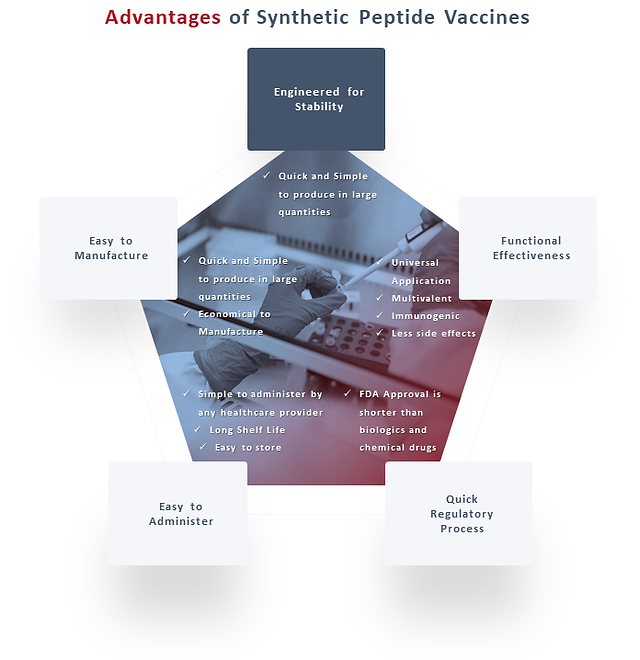Designing the Next Generation of Cancer Vaccines
A paradigm shift is currently underway on the relationship between cancer treatment markers and current cancer therapies.
The antigen Labyrinthin, recognized by the mouse monoclonal antibody MCA 44-3A6, is a prime example of such a marker because it serves as a pan-adenocarcinoma marker that is expressed on the surface of essentially all adenocarcinomas, including lung, breast, prostate, colorectal, prostate, stomach, liver, pancreatic, and ovarian cancer, but not in normal cells nor other types of cancers.

Valuable pan-tumor marker for all adenocarcinoma cells
Labyrinthin does not express in normal, healthy, or non-adenocarcinoma cells
Anchored to the surface of tumor cell
Presence on cell surface makes Labyrinthin directly accessible for antibody treatment and diagnosis
May play a physiological role in cancer
Data indicate that Labyrinthin affects normal-to-cancer progression of cell
Targeting a molecule that plays a part in cancer progression will more likely yield long-lasting effects compared to targeting a marker that is only a by-product of cancerc
Presence and location of Labyrinthin is easy to monitor and track
Allows for monitoring of cancer treatments and tracking of metastaseses that may not show up in the clinic
Worldwide, there are approximately 7.9 million new adenocarcinoma patients each year. Our initial treatment vaccine is designed for patients to raise an immune response against their own adenocarcinoma. It is important to note that Labyrinthin is both a broad (all adenocarcinomas) and selective (not on healthy cells), and this approach is therefore ideally suited for those patients.
In 2003, we engineered one of the earliest known synthetic peptide vaccines which was approved by the WHO for a Phase I/II in-human clinical trial. Our most recent synthetic vaccine, LabVax 2.0, is a labyrinthin-based peptide complex vaccine and is specifically designed to elicit both a humoral immune response (B-Cell) and a cell mediated immune response (T-Cell).
The idea is for the body to engage its own immune system to produce antibodies that target and locate Labyrinthin-positive cancer cells to initiate a process that both prevents tumor growth and kill existing tumor cells.

